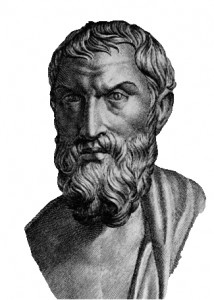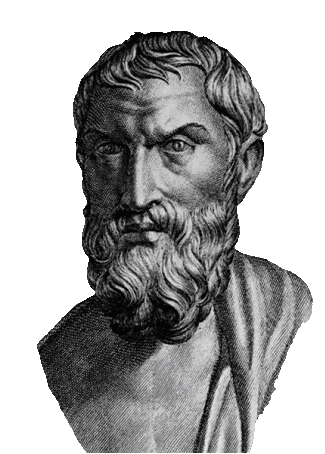Peace and Safety For Your Twentieth of November! – On Doctrine 39, and “Passing By”
 Peace and Safety to the Epicureans of today, no matter where you might be!
Peace and Safety to the Epicureans of today, no matter where you might be!
For today’s memorial post, let me refer you to Doctrine 39, which has long seemed to me of particular help in considering how we should organize our lives in relation to other people, and let’s compare it to a passage from Frederich Nietzsche. First, Doctrine 39:
He who desires to live tranquilly without having anything to fear from other men ought to make them his friends. Those whom he cannot make friends he should at least avoid rendering enemies, and if that is not in his power, he should avoid all dealings with them as much as possible, and keep away from them as far as it is in his interest to do so.
Surely this is critical advice – our lives are short, and in the brief span of time allotted to us by Nature we should seek out all the pleasure available to us. And certainly no advice is more embedded in Epicureanism than that attention to our dealings with our friends is critical to our happiness. Does this not mean that, to the extent that it is possible to us, we should deal only with those who our are friends, or at least with only our friends and those who are capable of being made our friends?
Let’s compare that with a passage from Nietzsche’s Thus Spake Zarathrustra, 51 – On Passing By. The context is that our hero Zarathrusta has come upon a city filled with men who live in a manner of which Zarathrusta strongly disapproves.
Outside the city, Zarathrustra has first come upon a malcontented man who understands some – but not the essence – of Zarathrustra’s views on proper living. The malcontent is called the “Ape of Zarathrustra” because he mouths many of Zarathrustra’s words without understanding their implication.
Just before the passage I am about to quote, the Ape has launched a tirade against the city, and advised Zarathrustra to pass it by without entering, so disgusting would Zarathrustra find the people of the city if he entered. Here is the exchange:
[the Ape concluded his tirade to Zarathrustra with this advice:] —Spit on the great city and turn back!—
Here, however, did Zarathustra interrupt the foaming fool, and shut his mouth.—
Stop this at once! called out Zarathustra, long have thy speech and thy species disgusted me!
Why didst thou live so long by the swamp, that thou thyself hadst to become a frog and a toad?
Floweth there not a tainted, frothy, swamp-blood in thine own veins, when thou hast thus learned to croak and revile?
Why wentest thou not into the forest? Or why didst thou not till the ground? Is the sea not full of green islands?
I despise thy contempt; and when thou warnedst me—why didst thou not warn thyself?
Out of love alone shall my contempt and my warning bird take wing; but not out of the swamp!—
They call thee mine ape, thou foaming fool: but I call thee my grunting-pig,—by thy grunting, thou spoilest even my praise of folly.
What was it that first made thee grunt? Because no one sufficiently flattered thee:—therefore didst thou seat thyself beside this filth, that thou mightest have cause for much grunting,—
—That thou mightest have cause for much vengeance! For vengeance, thou vain fool, is all thy foaming; I have divined thee well!
But thy fools’-word injureth me, even when thou art right! And even if Zarathustra’s word were a hundred times justified, thou wouldst ever—do wrong with my word!
Thus spake Zarathustra. Then did he look on the great city and sighed, and was long silent. At last he spake thus:
I loathe also this great city, and not only this fool. Here and there—there is nothing to better, nothing to worsen.
Woe to this great city!—And I would that I already saw the pillar of fire in which it will be consumed!
For such pillars of fire must precede the great noontide. But this hath its time and its own fate.—
This precept, however, give I unto thee, in parting, thou fool: Where one can no longer love, there should one—pass by!—
Thus spake Zarathustra, and passed by the fool and the great city.
I think Epicurus would have appreciated this passage, and I think his advice to us in PD 39 is quite similar to that which Zarathrusta gives here. Why do we choose to remain as critics in intolerable situations? Why do we pass up the pleasure that is possible to us if we will but live our lives — as much as possible — among those we love? As we grow old and near the end of our lives, we do not want to look back and ask ourselves, in deep regret:
Why wentest thou not into the forest? Or why didst thou not till the ground? Is the sea not full of green islands?
When we warn others of the hazards that Epicurus points out to us, do we also heed our own warnings? Do we ourselves follow Epicurus’ advice?
I think Epicurus would likely have endorsed Zarathrusta’s conclusion here:
This precept, however, give I unto thee, in parting, thou fool:
Where one can no longer love, there should one—PASS BY!—
________________
As Seneca recorded: Sic fac omnia tamquam spectet Epicurus! So do all things as though watching were Epicurus!
And as Philodemus wrote: “I will be faithful to Epicurus, according to whom it has been my choice to live.“

